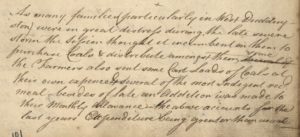Surveys over the years show that genealogists are the largest client group for Library and Archives Canada. Many I connect with are not happy with the service provided. What could be done better? Here are three things.
1. Improve on slow response or lack of response. That applies to the website and response to requests for documents.
Website response can be extraordinarily slow. It’s frustrating when you’re up against a deadline for preparing a presentation, demonstrating a search live during a presentation or helping someone. Slow response isn’t the case all the time but more so at the LAC site than at others.
For Access to Information requests, which cost $5 by law “a response is required within 30 calendar days of the date the request was received.” These days we just receive a notice that they’re backlogged. Then you wait weeks. Requests through the regular request for documents can take a year and more. What action is LAC management taking to meet legal obligations and provide timely responses to ordinary requests?
The last time I did receive a response it came on a CD, a format that is no longer supported by newer computers.
2. Improve access to online materials. LAC did a great job in digitizing a range of materials, notably Great War service files, something management has been dining out on for years. The pace is now much slower as much less effort is being applied to digitization.
I read in Chris Paton’s blog that the National Library of Scotland has a new agreement to extend access to licensed digital collections for everyone in Scotland. The library edition of FindmyPast is newly available giving access to many of the site’s UK holdings, as well as its digitized newspapers, at no cost for residents of Scotland. The NLS has existing licensed digital collections – access to the 19th-century newspaper collection, The Times, The Scotsman Digital Archive 1817-1950, JSTOR, the Oxford Dictionary of National Biography, SCRAN, Who’s Who & Who Was Who, the UK Parliamentary Papers site, and much more.
When will LAC offer a similar Canadian-focussed service? It would be a way to compensate for the lack of newspaper digitization at LAC. For instance, with its existing relationship with Ancestry why not negotiate national online access to the Canadian newspapers at newspapers.com which is an Ancestry service?
3. Provide access as a FamilySearch affiliate library. Those of us able to use the facilities at 395 Wellington wonder why it is not an affiliate library already which would give broader FamilySearch access. Again there is an existing relationship and many libraries, including all branches of the Toronto Public Library, have such a relationship for visitors to branches. As a national institution that should be possible notwithstanding any passé local objections.
Are there other things Library and Archives Canada could do, particularly things peer organizations already do, to better serve its largest client group?


 News from ScotlandsPeople on long-awaited kirk session records.
News from ScotlandsPeople on long-awaited kirk session records.